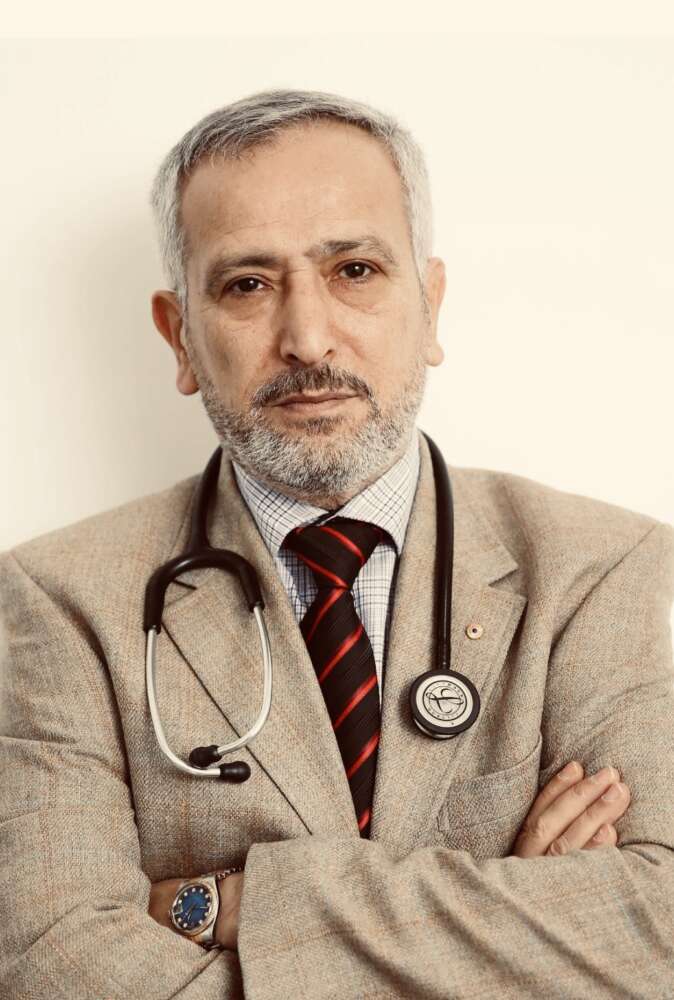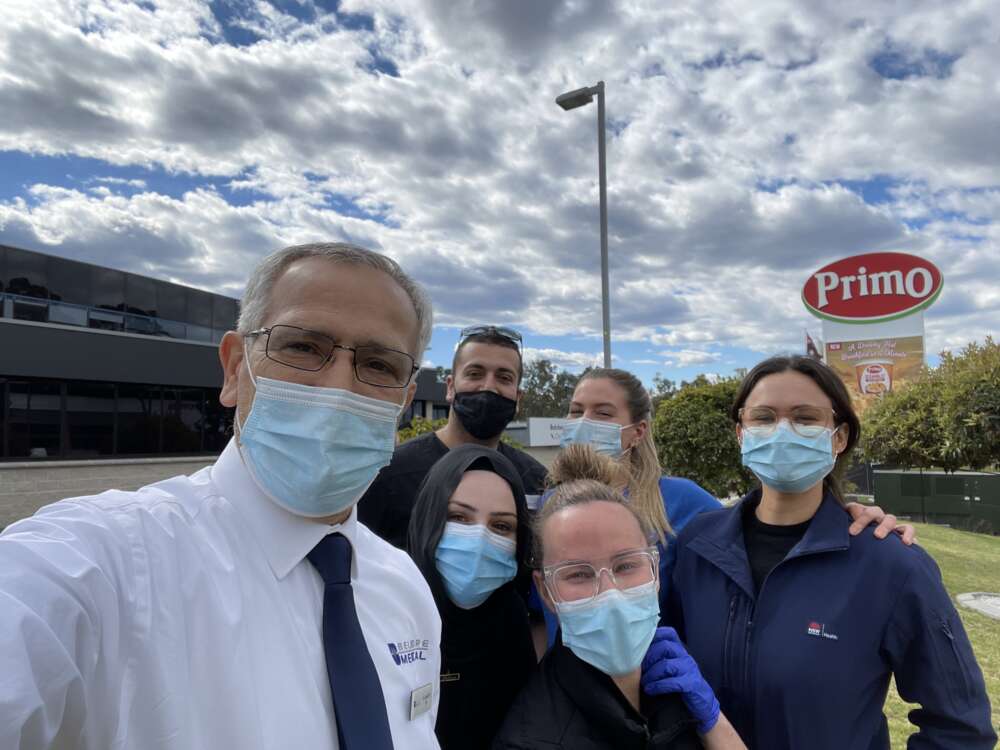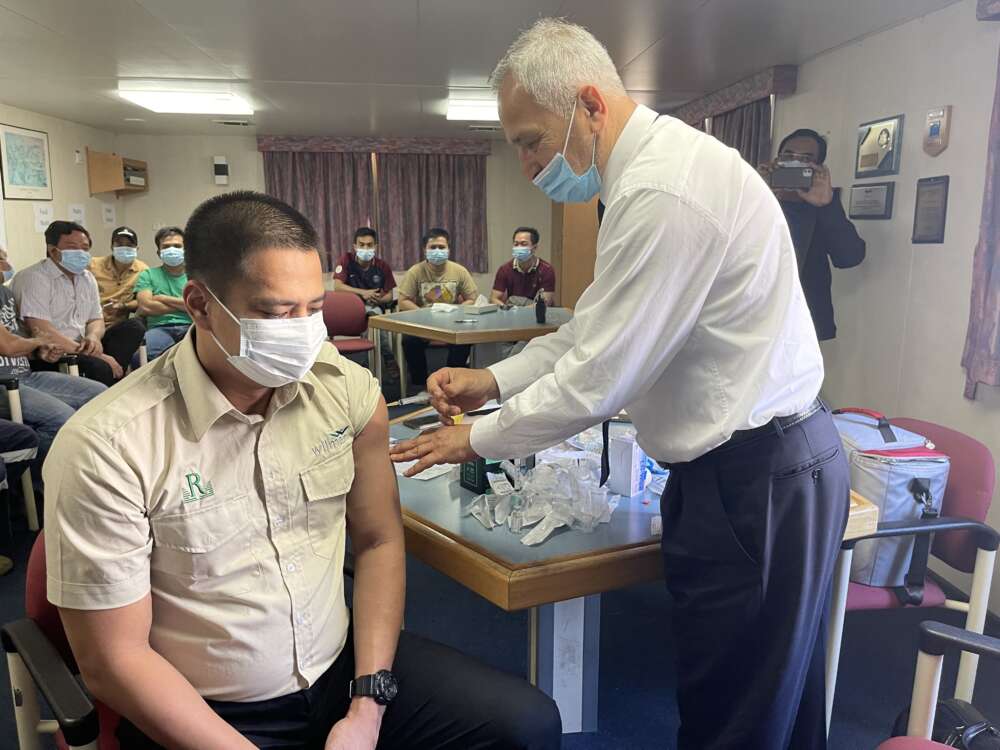
As the number of people dying at home from Covid-19 in NSW increases, Dr Jamal Rifi, of Belmore, warns this is not acceptable.
There had been 30 deaths at home by last night (Monday, 27 September). Nearly half of these cases were not diagnosed until after death.
“We should endeavour that no one should die at home from COVID 19,” Dr Rifi said.
Dr Rifi has been responsible for a massive Covid-19 vaccination drive, doing 22,228 among Sydney’s multicultural communities in the city’s west and is an Arabic community leader.
In the five months from March 22, 2021, Dr Rifi vaccinated 10,000 people. But vaccine hesitancy is finally breaking down and in the last five weeks he’s vaccinated another 15,000.

He said once Sydney’s lockdown restrictions are eased, estimated to start from October 11, then the virus will actually be circulating more.
“That means many people will still become sick, whether vaccinated or unvaccinated.”
While the vaccinated are less likely to get as sick, there is a lack of understanding among everyone – whatever their language – about how to manage their symptoms if they become extremely unwell, he explained.
“So education about how to estimate the degree of your illness is needed right now,” he said.
“Education is needed right now.”
“Any death from Covid-19 is a tragedy. But to die at home from Covid-19 is a bigger tragedy for the person’s loved ones and family,” he said.
Dr Rifi said many worried relatives are ringing him or other GPs as someone quickly deteriorates at home.
“They ring because they don’t know what to do. They are frightened and confused. In some cases, particularly if they haven’t had a Covid-19 test, they are being told they will have to wait five or six hours for an ambulance. But by the time the ambulance arrives in those circumstances, it’s too late,” he said.
“NSW Health must throw massive resources at Hospital in the Home right now,” he said.
Currently, there is no agreed state-wide model of home based care for Covid-19. Each local health district (LHD) runs their own system and each is slightly different. It’s an evolving model and not co-ordinated across the state.
Good Grief! believes NSW Health has been unprepared for the extent of the problem this presents – particularly in its large, multicultural communities.
Some people downplay their symptoms to their family
“People are afraid to go to hospital for many different reasons. These reasons are different from one family to another.
“But there is a trend among some migrant families at the moment to downplay their symptoms to reassure their family. They are also doing this, partly so they can convince themselves that they are not as sick as they are,” Dr Rifi said.
“I have had people talking to me on the phone incoherently, who do not realise they are hypoxic – that is lacking oxygen.
“There are others who are older and don’t want to be in hospital without having their family with them. Their English is not good enough to be able to understand doctors and this frightens them. These are valid concerns.”
Dr Rifi said Covid-19 patients in crisis – it can happen very quickly – will get to the point where they are too sick to make a phone-call. These patients need a back to base button alert system like that used for the elderly.
Help is coming from NSW but its too slow
Dr Rifi spoke with the NSW Multicultural Health Unit yesterday and was assured that resources were being developed for non-English speaking background Australians. But he fears that while the bureaucracy comes to grips with the extent of the need, more people will die at home unnecessarily.

“Every Covid-19 positive patient who is deteriorating is entitled to therapies which would give them an opportunity to fight the disease and survive it,” he said.
He said the reality is that currently, these therapies are provided in hospitals.
“People should not be condemned to die if they can’t get to hospital. Too many young people are dying at home with no underlying conditions because they have underestimated how sick they will get,” he said.
Information in Arabic
Dr Rifi has translated our symptoms guide At Home (Alone) with Covid-19 into Arabic as a community service.
We would like it translated into other languages in the community. Please get in touch if you can help with this.
Dr Rifi appeared on the ABC’s 7.30 Report, discussing this issue last night.
He has also talked on Arabic Radio to educate people about what they will need to do if they get sick with Covid-19 at home.
Here is our symptom guide in Arabic, translated by Dr Rifi. Thank you Dr Rifi!
